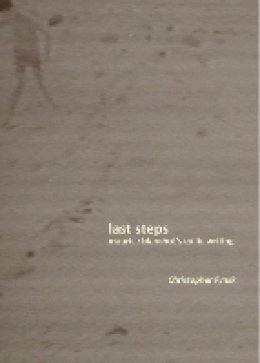7%OFF

Stock image for illustration purposes only - book cover, edition or condition may vary.
Last Steps: Maurice Blanchot´s Exilic Writing
Christopher Fynsk
€ 36.99
€ 34.36
FREE Delivery in Ireland
Description for Last Steps: Maurice Blanchot´s Exilic Writing
Paperback. Offers a sustained reading of Blanchot's The Step Not Beyond that is prepared by interpretive presentations of a number of his important writings of the post-war period Num Pages: 320 pages. BIC Classification: DSB; HP. Category: (P) Professional & Vocational. Dimension: 229 x 152 x 19. Weight in Grams: 430.
Writing, Maurice Blanchot taught us, is not something that is in one’s power. It is, rather, a search for a nonpower that refuses mastery, order, and all established authority. For Blanchot, this search was guided by an enigmatic exigency, an arresting rupture, and a promise of justice that required endless contestation of every usurping authority, an endless going out toward the other.
“The step/not beyond” (“le pas au-delà”) names this exilic passage as it took form in his influential later work, but not as a theme or concept, because its “step” requires a transgression of discursive limits and any ... Read more
Product Details
Format
Paperback
Publication date
2013
Publisher
Fordham University Press United States
Number of pages
320
Condition
New
Number of Pages
312
Place of Publication
New York, United States
ISBN
9780823251032
SKU
V9780823251032
Shipping Time
Usually ships in 7 to 11 working days
Ref
99-1
About Christopher Fynsk
Christopher Fynsk is Director of the Centre for Modern Thought and Professor of Comparative Literature and Modern Thought at the University of Aberdeen. He is the author of The Claim of Language: A Case for the Humanities; Infant Figures: The Death of the Infans and Other Scenes of Origin; Language and Relation: . . . that there is language; and ... Read more
Reviews for Last Steps: Maurice Blanchot´s Exilic Writing
"The itinerary of Last Steps is unique and initially surprising: the ethico-political import of Blanchot's postwar writings, and particularly The Step Not Beyond. But in the course of this brilliant and compelling reading, Christopher Fynsk demonstrates that Blanchot's political engagement is central not just to his thinking about resistance or community or the events of 1968 but to everything from ... Read more
